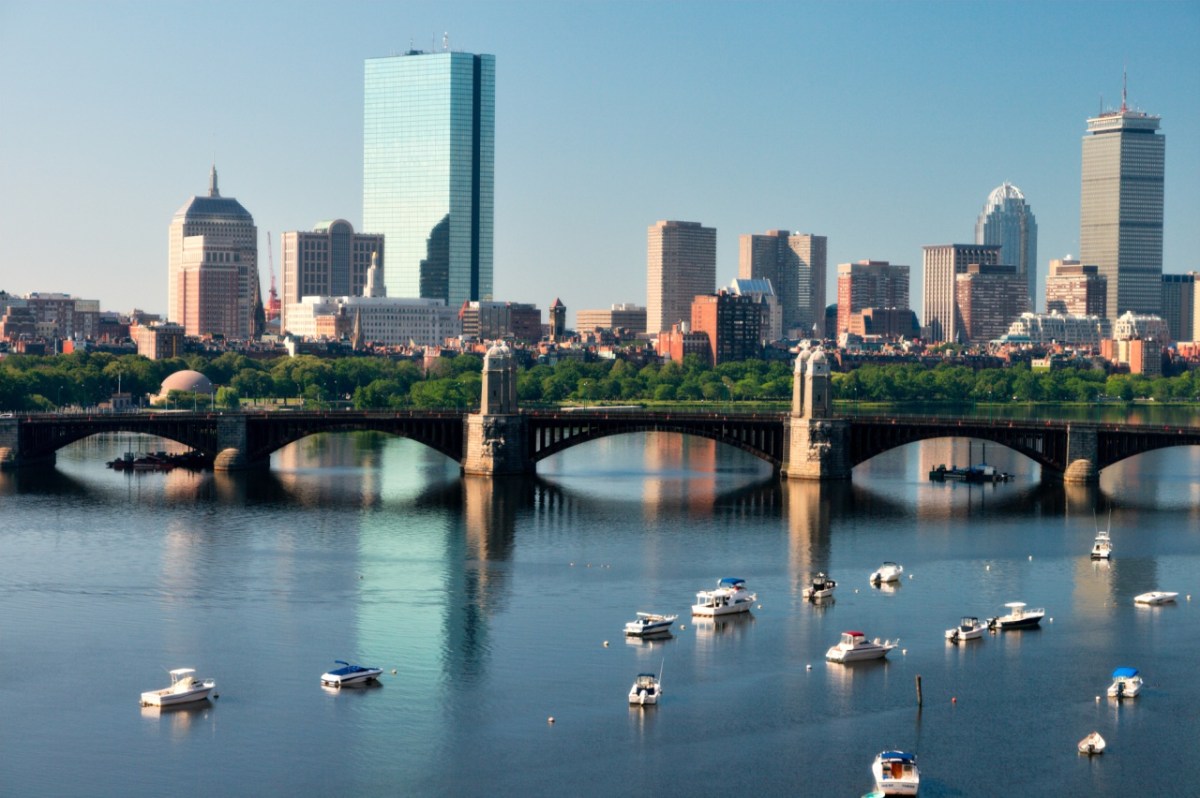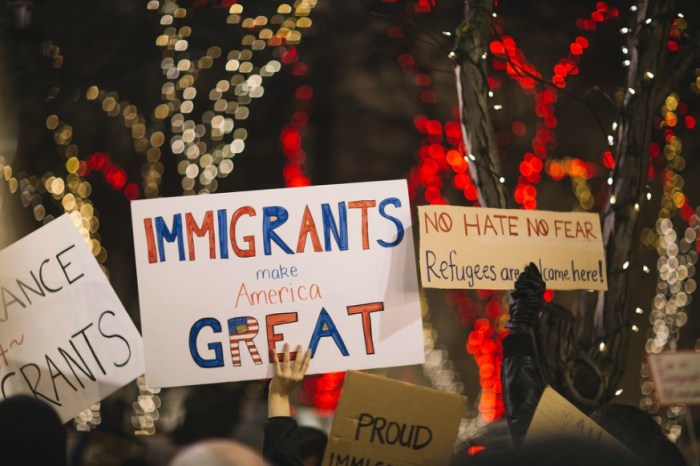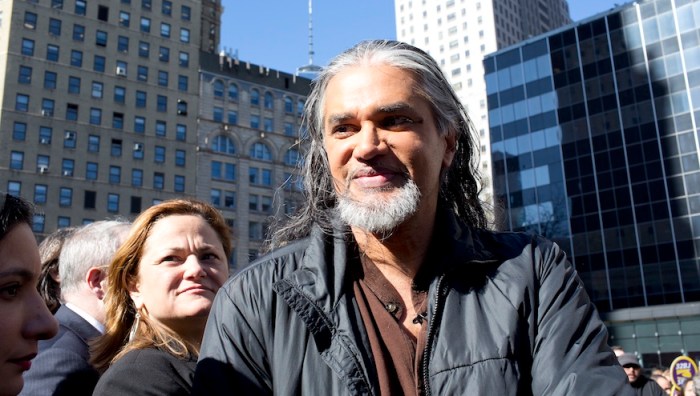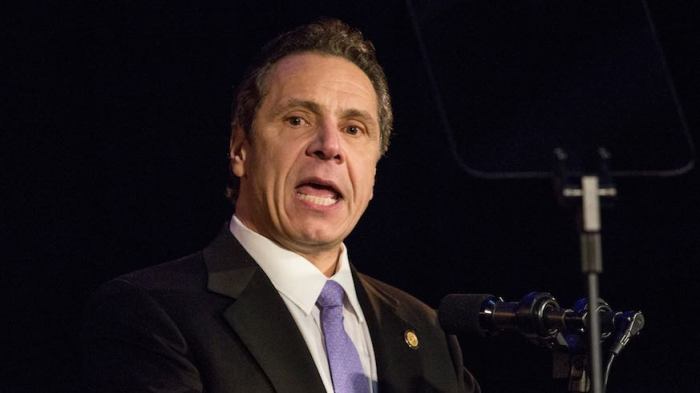Immigrants are the underpinning of entire sectors of the region’s economy and have been the driving force behind Boston’s population and workforce growth since 1980. But now policy proposals from the White House threaten to upend entire sectors of the region’s economy, city officials and immigrant advocates said Wednesday.
“The deeper you go into how we are affected — whether it’s being served a meal at a restaurant at lunch or having a loved one cared for — I think it becomes very apparent that we are at the cusp of a very serious problem,” Jewish Vocational Services President Jerry Rubin said, noting the prevalence of foreign-born workers in the service and long-term care industries.
There are 1,095,953 Massachusetts residents who were born in another country — totaling about 16 percent of the state’s population — and 28.4 percent of Boston residents, or 190,123 people, were foreign-born, according to Boston Planning and Development Agency data.
Since 1980, Boston’s population has grown by 14 percent and immigrants have accounted for almost all of that growth, Alvaro Lima, the BPDA’s director of research, said Wednesday morning at an event hosted by the Boston Foundation.
“Immigrants are crucial to the growth of the population, they are crucial to the diversity of the city, they contribute into Boston’s economic growth,” Lima said. “It’s very hard to have wealth and health in a society and in a city if it’s not by advancing the integration of immigrants.”
People born in other countries hold 27 percent of the jobs in Suffolk County and account for roughly 24 percent of the county’s economic output, Lima said.
But President Donald Trump’s executive orders on immigration and refugee policy are having a chilling effect on the immigrant community, stopping immigrants from coming to the United States and causing immigrants already in the country to question their place in American society, Eva Millona, executive director of the Massachusetts Immigrant and Refugee Advocacy Coalition said.
“The vision of the new president since the campaign has been unapologetically anti-immigrant, anti-refugee, and many thought it might just be a marketing tool during the campaign but he’s kept his promise and he is delivering on all those promises as to what the new vision is,” Millona said. “Over the years we’ve seen mood swings about our immigration and integration policies … but we haven’t seen anything like this; running an election with a notion of seeing all immigrants and refugees through the lens of terrorism.”
And that chilling effect could have drastic impacts on the region’s economy. As the Baby Boomer generation ages out of the workforce and while the state’s unemployment rate hovers around 3 percent, growth will be limited unless there are new workers entering the labor force here, according to Rubin.
“Boston in particular, but Massachusetts and probably New England in general, is facing a very serious challenge to our economic growth because you cannot grow when you are full employment without additional workers,” he said. “As you can see immigration has been the driver, really the entire driver, of the growth of the labor force and that presents a very, very serious problem to the overall economy, to the health and the welfare of the community, and particularly to the business community.”
Mark Zandi, chief economist of Moody’s Analytics, said at an economic conference in Boston earlier this year that as the Baby Boomer generation departs the workforce, a lack of immigration would be “a very significant constraint on the economy’s potential growth.”
“Not only do we need to maintain the level of immigration that we have now, which is about a million per annum — that’s legal and illegal — but we need more,” Zandi said. “In fact, I think the biggest problem businesses are going to face going forward is a lack of labor. It’s going to be a very tight labor market.”
The Boston region in particular could be affected by an executive order signed Tuesday by Trump. The order directs the secretary of state, the attorney general, the secretary of labor, and the secretary of homeland security to conduct an interdepartmental review of the H-1B visa program, which allows companies to bring “skilled” foreign workers to fill jobs in America for a set amount of time.
During a Tuesday event in Wisconsin, the president said the H-1B visa program “should include only the most skilled and highest-paid applicants and should never, ever be used to replace American workers.”
The rise of Massachusetts’ innovation economy has been driven by the region’s concentration of higher education institutions and the “internationalization” that leads to employers seeking out world-class talent that can come to America with an H-1B visa, Rubin said.
“That whole segment of our economy, what you might think of as the innovation economy or the knowledge-based economy where we are leaders nationally and internationally … sits on that base of immigrant talent,” he said. “That’s a major area of concern and I’m sure there many people who were nervous about yesterday’s news.”
While Trump’s administration ratchets up enforcement of immigration laws and presses ahead on its “America first” agenda, the executive director of an organization that helps immigrants become U.S. citizens said many immigrants have become increasingly interested in obtaining full legal citizenship. Only 10 percent of the 8.8 million eligible Green Card holders apply for full citizenship, she said.
“Citizenship was previously, I think, considered kind of a luxury, a sort of bucket list item to be crossed off,” Veronica Serrato, executive director of Project Citizenship, said. “But now it has really changed to an urgent need as the only protection against deportation.”















